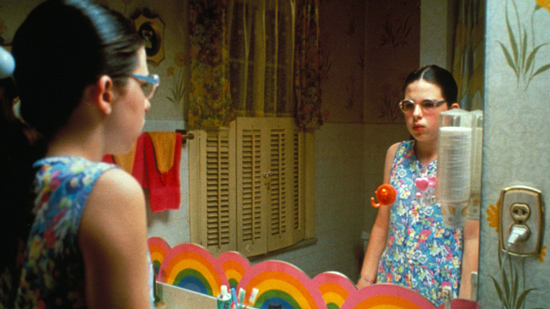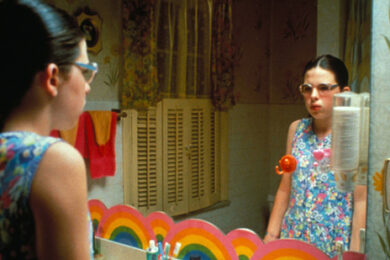"Fuck family. Fuck motherhood. Fuck the kids. I just don’t care any more," says Alison Janney’s Trish, holding a post-coital cigarette two-thirds of the way through Todd Solondz’s 2009 film Life During Wartime. As soon as she has her clothes back on, though, she retracts the statement. "Love really can change a person," she tells her new boyfriend. It’s a typical Solondz moment. You have to keep up.
Welcome to the Dollhouse (1995), Happiness (1998), Storytelling (2001), Palindromes (2004) and 2009’s Life During Wartime were all written and directed by Solondz, and they form a remarkably coherent body of work. It’s natural to focus on their common subject matter, especially as the films explicitly invite you to make connections between them by sharing characters and a complex continuity, but you can be forgiven for remembering the controversies first. The casts of paedophiles, rapists and abusers who are also parents, teachers and carers; the misery, rage, abortions and suicides; the uncomfortable depictions of underage sex. And the sharp, unhappy black humour – it’s brilliant, but with such grim themes, it was never going to sit well with most audiences.
But it’s unfair to look at the grotesqueness without setting it in the wider contexts of Solondz’s indubitable artistry and his fundamentally compassionate concern with finding some humanity even in the most monstrous characters. He faces up to their crimes, he doesn’t excuse them or make them likeable people, but he refuses to treat them as less than human. Did he deliberately court controversy by making Happiness feature a paedophile? Maybe. Maybe with good reason. He told the AV Club: "The great irony is that I have no real interest in pedophilia, so to speak. But as a metaphor, that is most demonized, ostracized, feared and loathed… I mean, I don’t know how to top that. I think most Americans would rather have Osama bin Laden at their table than a paedophile."
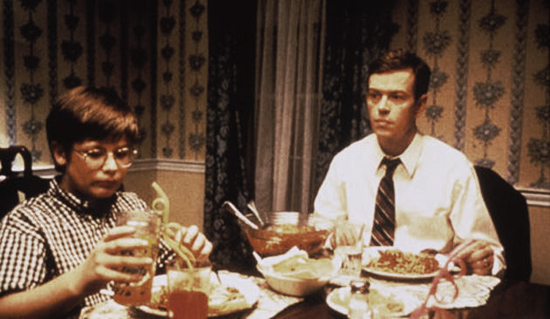
Then the MPAA famously insisted on placing a red box over the sex scene in Storytelling. Solondz suggests it was political, a reaction to the MPAA’s rating of the film. And in fact, the scene isn’t gratuitous. The ‘Fiction’ section of Storytelling is about the need we have to fictionalise what’s we can’t cope with directly, and the sex scene is pivotal. Vi (Selma Blair) attempts to seduce her creative writing professor (Robert Wisdom); he treats her coldly, but takes her home for sex. Their power dynamic shifts early as he takes control, and he’s rough with her; but then he hands part of that control back by asking her to use racist language. He reveals something about himself, a truth for her to use as fiction. When she does, she’s entirely undermined by her classmates’ refusal to believe it, but the film witnessed it. It confirms that some ‘fiction’ is ‘truth’. Controversial for some, but artistically valid. To object to the scene on the grounds that it is unsettling is to miss what it’s there to tell us
Solondz’s films are not about paedophilia, rape, underage sex and emotional abuse. They’re about power dynamics in human relationships. Bullying is a core enquiry – the theme introduced in Welcome to the Dollhouse continues throughout his career, but these bullies suffer too; the interest lies in how the bullied become bullies. These films examine some of the worst things people can do to each other emotionally, and show how impossible it is to see a black-and-white morality when you’re faced with real horror.
Solondz’s skill at drawing characters is remarkable. His characters are at once so individual and so universal they can often be played by completely disparate actors, and the way he plays with this concept is one of the most striking things about his work. Sometimes the recasting is quite subtle – Shirley Henderson and Allison Janney in Life During Wartime are recognisable as Joy and Trish (Jane Adams and Cynthia Stevenson in Happiness). At the other end of the spectrum is the almost endlessly mutable Aviva Victor in Palindromes – her essence persists through eight actors whose only similarity is their symbolically stomach-revealing clothes. One of the films’ most attractive qualities is that they show no interest in asking us to analyse this. It’s there, should we choose to, but it’s in no way necessary to do so.
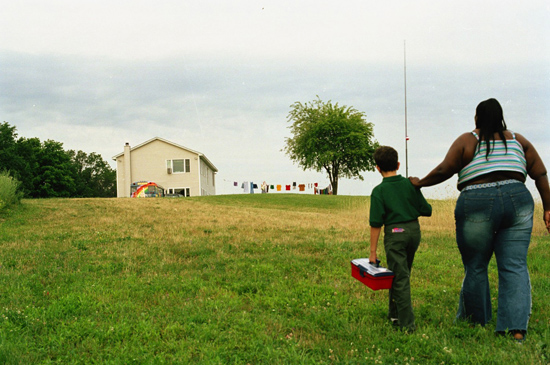
Solondz brings out the very best from his actors, too. Heather Matarazzo in Welcome to the Dollhouse, Phillip Seymour Hoffman, Dylan Baker and Camryn Manheim in Happiness, Shirley Henderson, Michael Kenneth Williams and Allison Janney in Life During Wartime, Sharon Wilkins in Palindromes – there are no performances that aren’t nuanced and subtle, and many are physically very courageous – Selma Blair’s in Storytelling, for example. This tension – brilliant acting and fluid characters – works to both distance and engage the viewer. It’s mirrored by the films’ frequent shifts in emphasis, like Aviva changing from a shy child to a Lolita figure in later sections of Palindromes. These tensions create a dissonance, which works powerfully to remind you you’re watching something crafted; but it works because the characters remain fundamentally true to themselves whatever (and however many actors) they go through. Aviva’s taking control of her much older boyfriend is just a development of something we’ve already seen in her personality.
Solondz is deservedly considered by some to have influenced much American cinema of the last 15 years. Artistically, there’s Todd Haynes’ [Safe] (1995) and Far from Heaven (2002), Ang Lee’s The Ice Storm (1997), Lukas Moodysson’s Fucking Åmål (1998), Sam Mendes’ American Beauty (1999) and Terry Zwigoff’s Ghost World (2001) to name but a few. Each of these films paints a bright, comfortable picture of suburban family life that only hints at the darkness beneath; each looks at the raw horror of adolescence in a different, blackly humorous way. None goes as far into shock territory as Happiness does, though.
There’s another strand of films that seem to aim for similarly uncomfortable territory – for example Larry Clark’s Kids (1995), with its brutal depictions of adolescent sexuality, Harmony Korine’s Gummo (1997) and Neil LaBute’s In the Company of Men (1997) with its ugly cruelty and matter-of-fact portrayal of disability. Or Gus van Sant’s Elephant (2003), which goes much further with its violence. Solondz’s work also bears thematic comparison with the films coming out of the Dogme 95 movement – the formal experiments, the concern with the sadness at the core of human relationships, the quietly confident celebration of the ordinary and the ugly. In terms of craft, thought Solondz is very far away: the simple but well-composed photography, the brilliant use of music, the careful, brightly-coloured-suburbia production design are all about as non-Dogme as you can get without pyrotechnics and CGI.
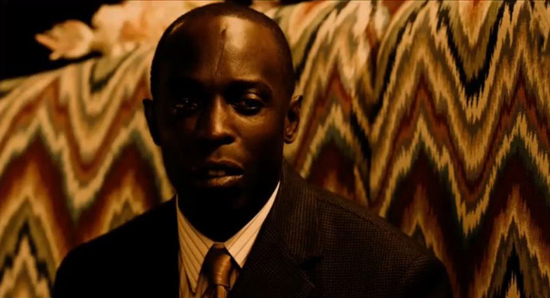
Rewatching the early films, I was struck by how much they’d worked their way into my consciousness since they came out. Storytelling, in particular, felt like a sequence of scenes from half-remembered dreams. The others have shifted more; most of what Happiness is actually about was overshadowed by the paedophilia storyline, the emotional impact of Palindromes mediated too much through its central conceit. But my memory of the way even the worst characters were made human and worthy of empathy was renewed rather than challenged. This constant thread of compassion is the reason they remain so powerful.
The next installment of the The Book Club’s cult film night, a tribute to the Golden Girls featuring a stage show by Amy Grimehouse, will be on July 14th, 7.30pm – 2am. £5 in advance. Tickets can be bought here.

